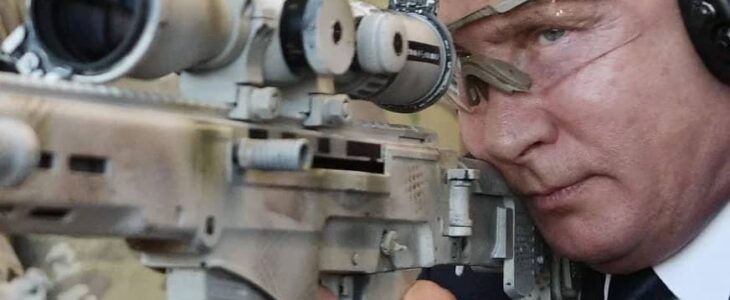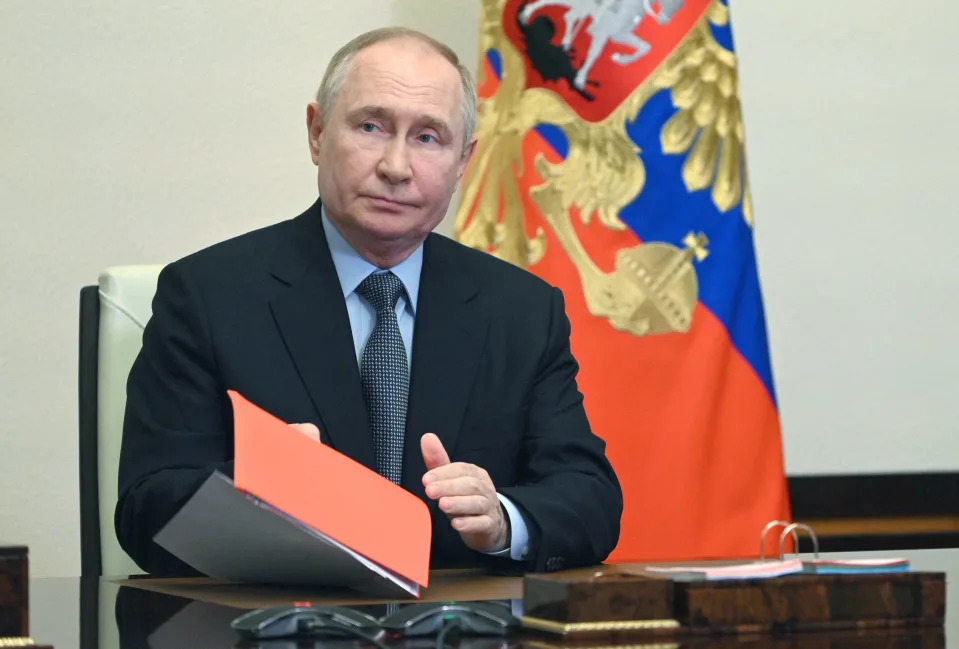
Russia has been carrying out hybrid attacks, aggression in the blurry grey area between war and peace, against NATO, unnerving the military alliance and raising concerns that what has long been a low-intensity campaign could escalate into something much bigger.
Recent covert acts of sabotage are far from the level of aggression and brutality that Russia has put on display in Ukraine. But make no mistake, a former top US general argued this week, Moscow is already fighting NATO.

“We need to acknowledge that they are at war with us,” said Ben Hodges, a retired lieutenant general and former commander of US Army Europe, on Wednesday at the NATO Public Forum in Washington, DC.
“It may not be T-72s or Sukhois that are striking NATO countries, but they are absolutely at war,” he said, referring to types of Russian tanks and aircraft, respectively. He listed off GPS jamming, sabotage, election interference, and the illicit movement of oil as a few examples of malign activity.

NATO allies have seen a string of aggressive acts linked to Moscow over the past few months, ranging from signal jamming and incidents of arson to cyber hacks and attempted assassinations. Moscow does not necessarily claim responsibility for these, but leaders have suggested that it is Russian President Vladimir Putin’s way of trying to interfere with Western support for Ukraine.
Russia’s leadership has regularly framed the conflict as not merely a fight with Ukraine but as a confrontation with NATO. Moscow routinely portrays itself as the victim while targeting other countries with direct and indirect aggression.
The recent campaign prompted NATO in May to raise public concern over Russia’s activities. In a pointed statement, the alliance expressed great concern over what it described as “hostile state activity” in a number of European countries.

“These incidents are part of an intensifying campaign of activities which Russia continues to carry out across the Euro-Atlantic area, including on alliance territory and through proxies,” the NATO statement said, adding that “this includes sabotage, acts of violence, cyber and electronic interference, disinformation campaigns, and other hybrid operations.”
NATO called the situation a “a threat to allied security” and said that allies “will act individually and collectively to address these actions.”
A lasting headache for NATO
Although the war in Ukraine has exacerbated tensions, the problem of Russian hybrid attacks is not a new hassle for the alliance, which has been dealing with this trend for quite some time.
“The Russian threat isn’t just directed at Ukraine. In fact, we all, in our own countries, have had warnings of this — we’ve all had knowledge of this and experience of this for a number of years,” UK Defense Secretary John Healey said at the Public Forum.
“We face wider Russian aggression directed at our own democracies, from hybrid attacks to threats in the high north,” he added.
Some allies know this better than others. The Baltic nations, which are on the alliance on its eastern flank, point to a long history of hybrid attacks by Russia to validate their concerns over neighboring Russia’s aggression.
“We’ve been advocating taking a strict position on Russia for years,” Latvian Defense Minister Andris Sprūds said alongside Healey and Hodges at the forum this week. “We, ourselves, have been experiencing hybrid attacks from Russia for decades, so that’s why the threat has been quite clear, what we’re facing.”
“We are facing Russia, the country, which can change in every five years — in every 10 years — dramatically,” the defense minister added. “But nothing changes in 100 years. So we pretty much see the same Russia. It’s expansionist, it’s imperialist, regardless what type [of] regime we are dealing with.”
The Russian hybrid attacks were a notable discussion point on the sidelines of the NATO summit in Washington this week. At one panel, US Secretary of State Antony Blinken said every ally is “acutely” aware of the threat and is focused on the recent upticks in sabotage.
“These are not one-offs,” Blinken added. “This is part of a deliberate strategy by Russia to try to undermine our security and undermine the cohesion of the Alliance. It’s not going to work because we see it and we’re acting on it.”
Credit: Yahoo News
